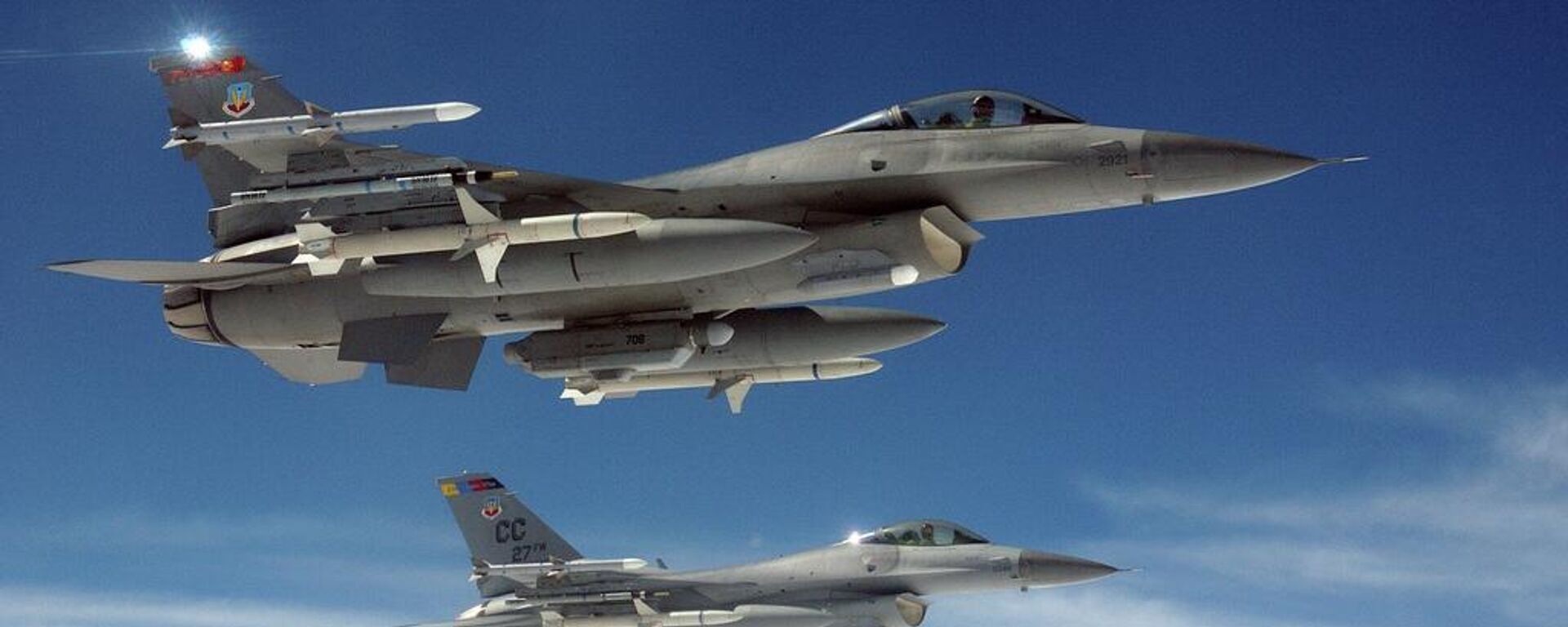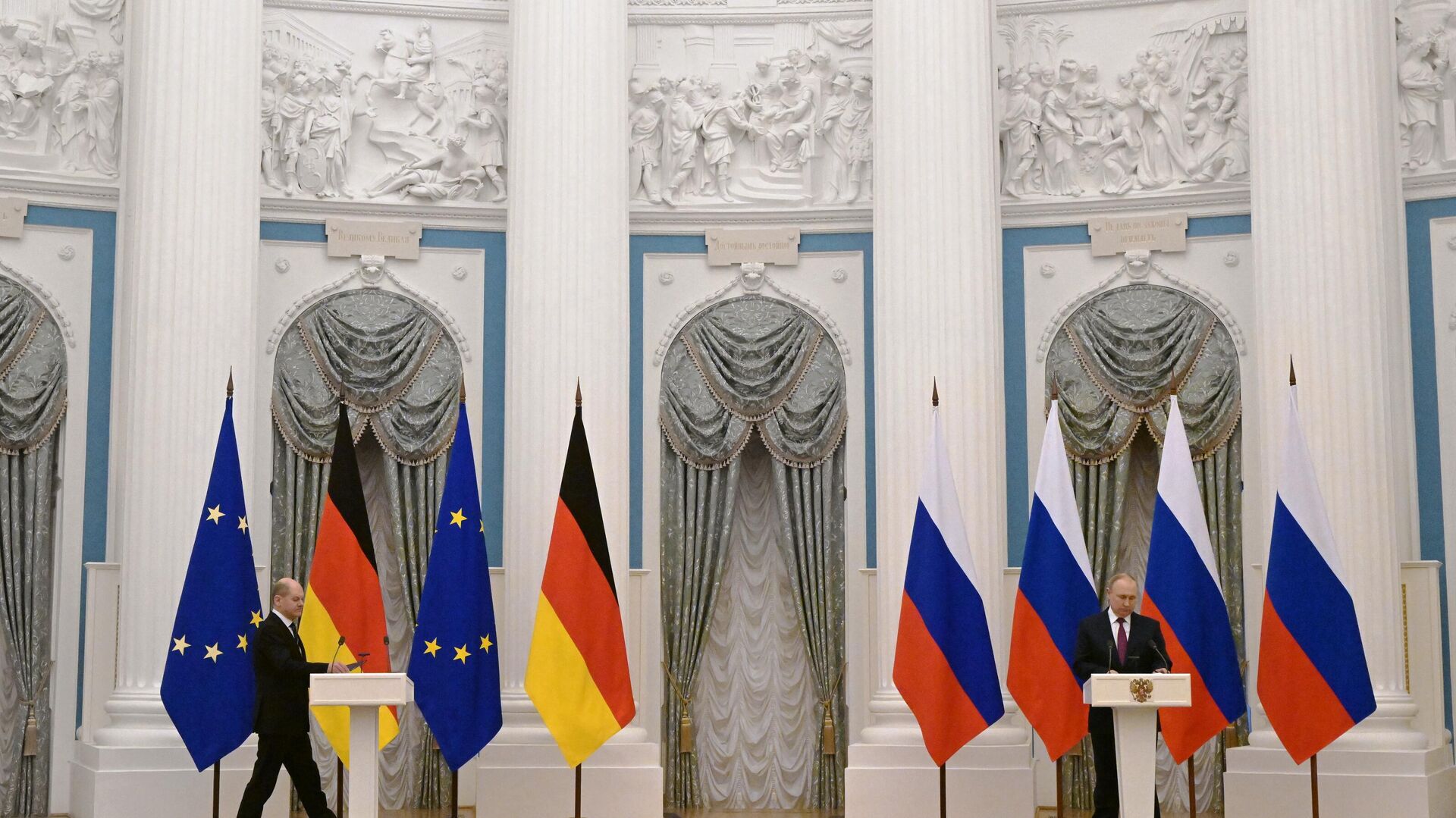https://sputnikglobe.com/20230828/putin-reportedly-agreed-to-meeting-in-spring-of-2022-with-scholz-macron---but-refused-zelensky-1112950770.html
Putin Reportedly Agreed to Meeting in Spring of 2022 With Scholz, Macron - But Refused Zelensky
Putin Reportedly Agreed to Meeting in Spring of 2022 With Scholz, Macron - But Refused Zelensky
Sputnik International
According to a new book, Russian President Vladimir Putin agreed early into the special operation in Ukraine to discuss the conflict with the German and French leaders, but refused to include the Ukrainian president in the talks.
2023-08-28T19:13+0000
2023-08-28T19:13+0000
2023-08-28T19:13+0000
world
olaf scholz
volodymyr zelensky
emmanuel macron
vladimir putin
negotiations
ukraine crisis
https://cdn1.img.sputnikglobe.com/img/07e6/02/0f/1093063030_0:126:3193:1922_1920x0_80_0_0_6e9e8a0b77b7fda1af15d9055f3fa55f.jpg
The revelation comes from a new book by filmmaker and journalist Stephan Lamby called “Emergencies: Governing in Times of War,” which was released earlier this month.Lamby published a description of a conversation between German Chancellor Olaf Scholz and French President Emmanuel Macron, in which Scholz informed his fellow NATO ally about his recent conversation with Putin. The story is told from Scholz’s perspective and the excerpt from Lamby’s book is described in a German daily.Although the author doesn’t give an exact date for the conversation, Putin spoke with both leaders on March 4, 2022, about a week after the special operation in Ukraine was declared and Russian forces intervened in the country, and reportedly agreed to tripartite talks at that time.However, Scholz said he and the Russian leader discussed more, too."Something bothers me more than the talks: He is not complaining about all the sanctions,” Scholz reportedly said to Macron. “I don't know if he did that in conversation with you. But he didn't even mention the sanctions.”At this point it should be remembered that prior to the launching of the special military operation, Moscow had been trying for months to negotiate with Kiev and the NATO powers to defuse tensions, including elaborating Russia’s security red lines that precluded Ukraine joining the NATO alliance and the positioning of NATO weapons on Russia’s borders.Russia had previously worked with France and Germany to create the Minsk Accords, aiming to put an end to the conflict in the Donbass region. However, Kiev did have been neglecting the implementation of the agreement, continuing constant attacks against the people of Donetsk and Lugansk for eight years, which resulted in thousands of deaths.
https://sputnikglobe.com/20230826/ukraines-pilots-wont-be-competent-to-fly-f-16s-let-alone-boost-kievs-offensive-1112907390.html
Sputnik International
feedback@sputniknews.com
+74956456601
MIA „Rossiya Segodnya“
2023
News
en_EN
Sputnik International
feedback@sputniknews.com
+74956456601
MIA „Rossiya Segodnya“
Sputnik International
feedback@sputniknews.com
+74956456601
MIA „Rossiya Segodnya“
scholz; macron; vladimir putin; zelensky
scholz; macron; vladimir putin; zelensky
Putin Reportedly Agreed to Meeting in Spring of 2022 With Scholz, Macron - But Refused Zelensky
According to a new book by a German journalist, Russian President Vladimir Putin agreed early into the special operation in Ukraine to discuss the conflict with the German and French leaders, but refused to include the Ukrainian president in the talks.
The revelation comes from a new book by filmmaker and journalist Stephan Lamby called “Emergencies: Governing in Times of War,” which was released earlier this month.
Lamby published a description of a conversation between German Chancellor Olaf Scholz and French President Emmanuel Macron, in which Scholz informed his fellow NATO ally about his recent conversation with Putin. The story is told from Scholz’s perspective and the excerpt from Lamby’s book is described in a German daily.
Although the author doesn’t give an exact date for the conversation, Putin spoke with both leaders on March 4, 2022, about a week after the special operation in Ukraine was declared and Russian forces intervened in the country, and reportedly agreed to tripartite talks at that time.
Scholz reportedly told Macron that Putin had told him “nothing new,” elaborating Russia’s position on Ukraine and its goals in the special military operation, including the demilitarization and de-Nazification of Ukraine, and asked Berlin to recognize Crimea as part of Russia and the Donbass republics as independent states - this was several months before the two republics and two other former Ukrainian provinces voted in referenda to join the Russian Federation.
However, Scholz said he and the Russian leader discussed more, too.

26 August 2023, 14:07 GMT
"Something bothers me more than the talks: He is not complaining about all the sanctions,” Scholz reportedly said to Macron. “I don't know if he did that in conversation with you. But he didn't even mention the sanctions.”
"When I asked him whether there should be a meeting on Ukraine, sooner or later, with you, me, [Ukrainian President Volodymyr] Zelensky and with him, Putin, he didn't completely refuse," Scholz continued. "But he mentioned two conditions. Firstly, there must be no reason for a ceasefire. Then he just talked about the three of us, you, me and him. Without Zelensky."
At this point it should be remembered that prior to the launching of the special military operation, Moscow had been trying for months to negotiate with Kiev and the NATO powers to defuse tensions, including elaborating Russia’s security red lines that precluded Ukraine joining the NATO alliance and the positioning of NATO weapons on Russia’s borders.
Russia had previously worked with France and Germany to create the Minsk Accords, aiming to put an end to the conflict in the Donbass region. However, Kiev did have been neglecting the implementation of the agreement, continuing constant attacks against the people of Donetsk and Lugansk for eight years, which resulted in thousands of deaths.



